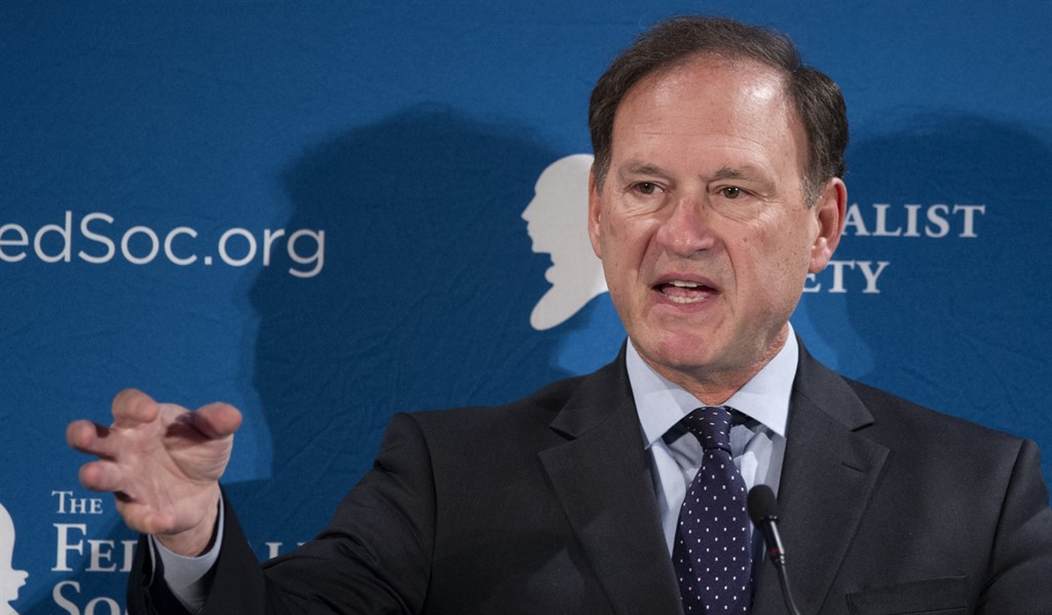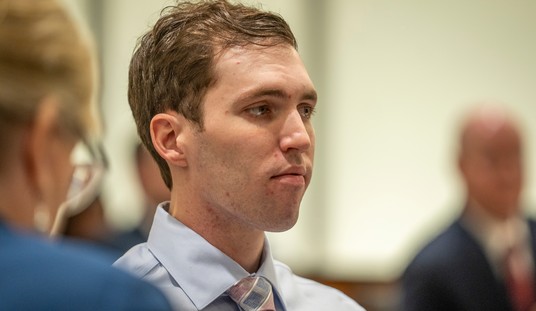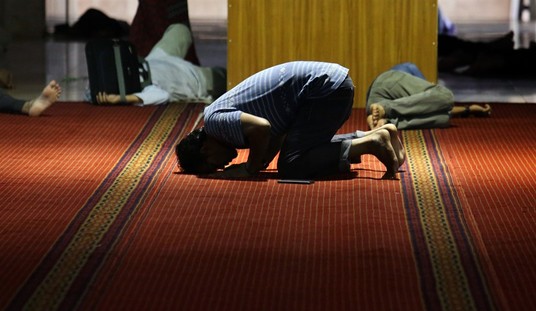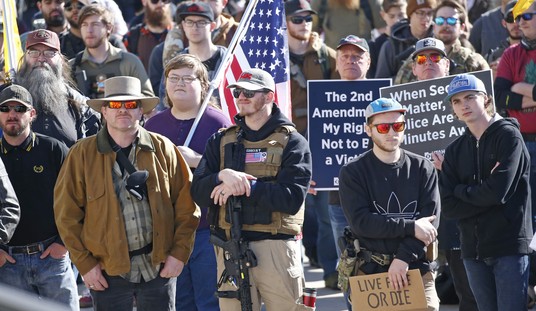As a general matter, it has always been my view that when you begin a legal argument with a “The Sky is Falling” pronouncement, where the “warning” tells the Court nothing that it does not know already, you are actually insulting the intelligence of the Judge — or in this case the Justices — by wasting time with useless theatrics.
This was my reaction to one of the sentences set forth in the opening of the Response filed by the Pennsylvania state defendants to the Emergency Application for Injunctive Relief filed by Congressman Mike Kelly and other Plaintiffs earlier today.
Petitioners ask this Court to undertake one of the most dramatic, disruptive invocations of judicial power in the history of the Republic. No court has ever issued an order nullifying a governor’s certification of presidential election results…. They make that request without any acknowledgment of the staggering upheaval, turmoil, and acrimony it would unleash. In issuing equitable relief, this Court rightly seeks to avoid inflaming social disorder. So to say that the public interest militates against Petitioners would be a grave understatement. Their suit is nothing less than an affront to constitutional democracy.
While there are certainly different levels of historic significance when considering the role of the decisions of the Supreme Court of the United States, the Defendants seem to have lost sight of the fact that this is the institution which outlawed racial segregation in Brown v. Board of Education; recognized states’ ability to regulate private enterprises in Munn v. Illinois; Congress could regulate the sale of commodities that never left a state as having an effect on “interstate commerce” in Wickard v. Filburn; refused to allow the government to use illegally seized evidence in a criminal prosecution in Mapp v. Ohio; etc.
The idea that the Supreme Court should shrink from making difficult choices in reaching a decision in a case before it due to the claim by Pennsylvania that no court has ever done this before is moronic. Yes, it’s never been done before.
Also yes — no State has ever conducted an election in a manner that violated the State’s own Constitution.
There’s a first time for everything, that the US Supreme Court is often the place where these “first-time” occurrences take place.
A comprehensive breakdown of the Response filed by Pennsylania is beyond this first look at what they have filed, and it may be the case that the Supreme Court acts before I have time to break down everything in their filing which will cause me to shift the focus of my attention anyway. But here are just a couple of comments on the way the Response addresses issues I have raised in my own writings on this topic.
They claim the legislative history of Act 77 confirms that the General Assembly understood itself to be creating a form of voting distinct from absentee ballots, as is recognized by the ongoing process to amend the Constitution.
The legislative history of Act 77 confirms that the General Assembly understood itself to be creating a form of voting distinct from absentee ballots.
The Response proffers the “almost impossible to make with a straight face” claim that the proceeding still in progress to amend the Pennsylvania Constitution to accommodate “no-excuse” absentee voting is being pursued in order to assist the General Assembly in “harmonizing” the two methods for casting a ballot other than appearing at a polling place to vote.
In 2019, the General Assembly considered, and later moved forward with, a proposed Constitutional amendment that would have expanded the parameters of absentee voting. See Pet. at 8-9. During the same period, the General Assembly passed Act 77. The proposed amendment is still pending and applies to absentee (not mail-in) voting. If passed, it would enable the General Assembly to streamline the Election Code by harmonizing and merging the provisions that apply to mail-in and absentee voting.
As evidence of this distinction, they quote Pennsylvania Senator Mike Folmer, a Senate Co-Sponsorship of the legislation who wrote that the joint resolution was intended to “empower[] voters to request and submit absentee ballots for any reason”.
If Act 77 lawfully authorized ALL Pennsylvania voters to submit a ballot by mail for any reason, why is there a need to create a “no excuse” provision for Absentee ballots? What subset of ALL voters in Pennsylvania would have need to resort to an “Absentee ballot” when a “no-excuse” mail-in ballot is available to ALL Pennsylvania voters?
Claiming that Act 77 lawfully created a “new” method of voting, in a manner allowed by the Pennsylvania Constitution, and this method is distinguishable from the “Absentee Voting” authorized in the same Constitution in very limited factual circumstances, is a farcical asserting that only undermines the credibility of all that follows. It leads to the kinds of questions in oral arguments that start with “Do you want this Court to believe….” There are generally only bad answers that come from such questions.
The Response relies heavily on prior Supreme Court case law dealing with the application of “laches” in State Supreme Court decisions, and language from such decisions stating that the application of “laches” is an independent and non-federal issue that will not be reviewed by the US Supreme Court. This language certainly exists in many decisions — and most of those decisions are more than 100 years old.
That is not to suggest that Supreme Court precedent expires with age, but only that this is the type of “claim” that the Supreme Court will be able to brush aside IF it wants to reach the merits of the dismissal of the case by th Pennsylvania Supreme Court where that Court avoided addressing the Plaintiffs’ claims on the merits by resorting to the use of “laches” as a vehicle. If there are five votes that there is a federal constitutional question posed by the allegations made in the Plaintiff’s complaint, the Supreme Court will reach that question without regard to the fact that the Pennsylvania Supreme Court blocked its consideration without creating any factual record to support its claimed “independent state law” grounds for doing so. Those five votes will not allow “gamesmanship” by the partisan members of the Pennsylvania Supreme Court to allow its conduct to evade review.
It seems to me from reading the Response that the state defendants spend most of their energy and credibility on staking the claim that the Supreme Court should not entertain these claims due to the collateral implications, and not so much on the basis that what the Pennsylvania General Assembly did was right, or that the Pennsylvania Supreme Court was correct in dismissing the Complaint as it did. This seems very defensive and reflects a fear that the Supreme Court may “call them out” for their misconduct.
But it does not necessarily follow that five members of the Court will their way clear without a clear view of what might follow if they did.
The one issue raised by the Response which I think might resonate with the Court is that any decision which inserts the Court into the determination of Pennsylvania’s Electors runs contrary to “separation of powers” principles which place the responsibility for resolving disputes over the validity of named “Electors” with Congress. By the passage of the Electoral Count Act — a federal statute and not a constitutional provision — the political branches created within Congress (which accepts the vote of the Electoral College under constitutional provisions) a mechanism for dealing with disputes that arise within a state over the naming of Electors.
This raises the point that I made in my article yesterday — how is the Court prepared to respond if it were to grant the injunction against the Pennsylvania state defendants, and on January 6, 2021, the Joint Session of Congress nevertheless counts the slate of Electors already certified and sent by the Pennsylvania Governor for Joe Biden?
There is no functional method I can envision where the Court would attempt to place itself deeper in this controversy between January 6 and January 21 if the Congress was to certify the vote of the Electoral College which included 20 Electoral votes from Pennsylvania in favor of Joe Biden. If it issues an Order that the political branches ignore along partisan lines, the Court will be damaged as an institution. I think there is no question that the Democrats, in their overriding desire to be rid of Donald Trump and deny him a second term, will disregard the damage they would do to the Court by ignoring any Order and moving forward. Under the Electoral Count Act, even if the GOP controlled the Senate, a dispute regarding the validity of Electors that cannot be resolved between the two chambers results in the acceptance by default of the Electors cerfitied by the State’s Governor — meaning the Electors named for Joe Biden would be counted.
This fact is, in my view, the practical counter-balance to any sentiment on the Court to insert itself at this time by creating any form of “retrospective” relief that addresses the validity of the Pennsylania “mail in” voting scheme.
More to come.














Join the conversation as a VIP Member